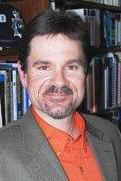An NMU administrator is assessing the services provided for students with autism-related disorders and looking to implement a plan that will train professors to have greater communication with students affected by such learning disabilities.

Dale Kapla, associate provost for undergraduate programming and faculty affairs, has assembled a group of individuals to see how NMU can become more of an autism-friendly campus in the near future.
“If you have developmental disabilities, or whether you don’t, the goal is still the same. You’re here at Northern, you’re going to get a great education, and we’re going to provide support necessary for you to do that so you can be successful,” Kapla said. “That’s what we all want.”
Kapla, along with his chosen committee of individuals, met for a group discussion over Thanksgiving break to further brainstorm ideas of what an autism-friendly campus would look like and set goals for the upcoming semester. The group seeks to create a support structure for students with developmental disabilities by training professors to be more interpersonally involved rather than just sending students to a counselor if their academic performance is in jeopardy because of a disability.
“If we can be the university that says if you decide to come here, we’ll help you, that in itself is enough and that’s what the university should be doing,” Kapla said.
The idea to evaluate the special needs services at NMU came about with the new Applied Behavior Analysis (ABA) program in the psychological science department and the Behavioral Education Analysis and Research (BEAR) Center, Kapla said.
The group is being advised by Scott Koenigsknecht Ph.D, Superintendent of Ingham Intermediate School District, who attended the discussion via video chat and provided guidance on how to proceed with this plan. Koenigsknecht, who serves on Lt. Gov. Brian Calley’s Special Education Reform Task Force, is a resource for the committee, Kapla said.
Committee members explained what they want to see at NMU is an increase of peers, both academically and socially, setting up clear expectations in outcomes for students with disabilities and making sure there’s a level of independence incorporated so students can succeed.
Though the plan for NMU is still being determined, Kapla said it would ensure the trust of parents in the university.
“I would say it’s an inclusive campus where students with developmental disabilities, students with autism and their parents feel comfortable dropping their student off here knowing they’re going to get the best support possible in order for them to be successful,” Kapla said.
Other matters discussed involved housing situations, making the application process more interpretable, whether or not to increase resources for the BEAR Center, what type of training should faculty be aware of, in addition to what sort of courses will be offered for those with developmental disabilities.
Kapla said with this plan, there are costs to recognize such as potentially increasing resources for the counseling center, expanding the BEAR Center and increasing resources for student support services.
“We have all these pieces here, we just need to coordinate them all together.”
























